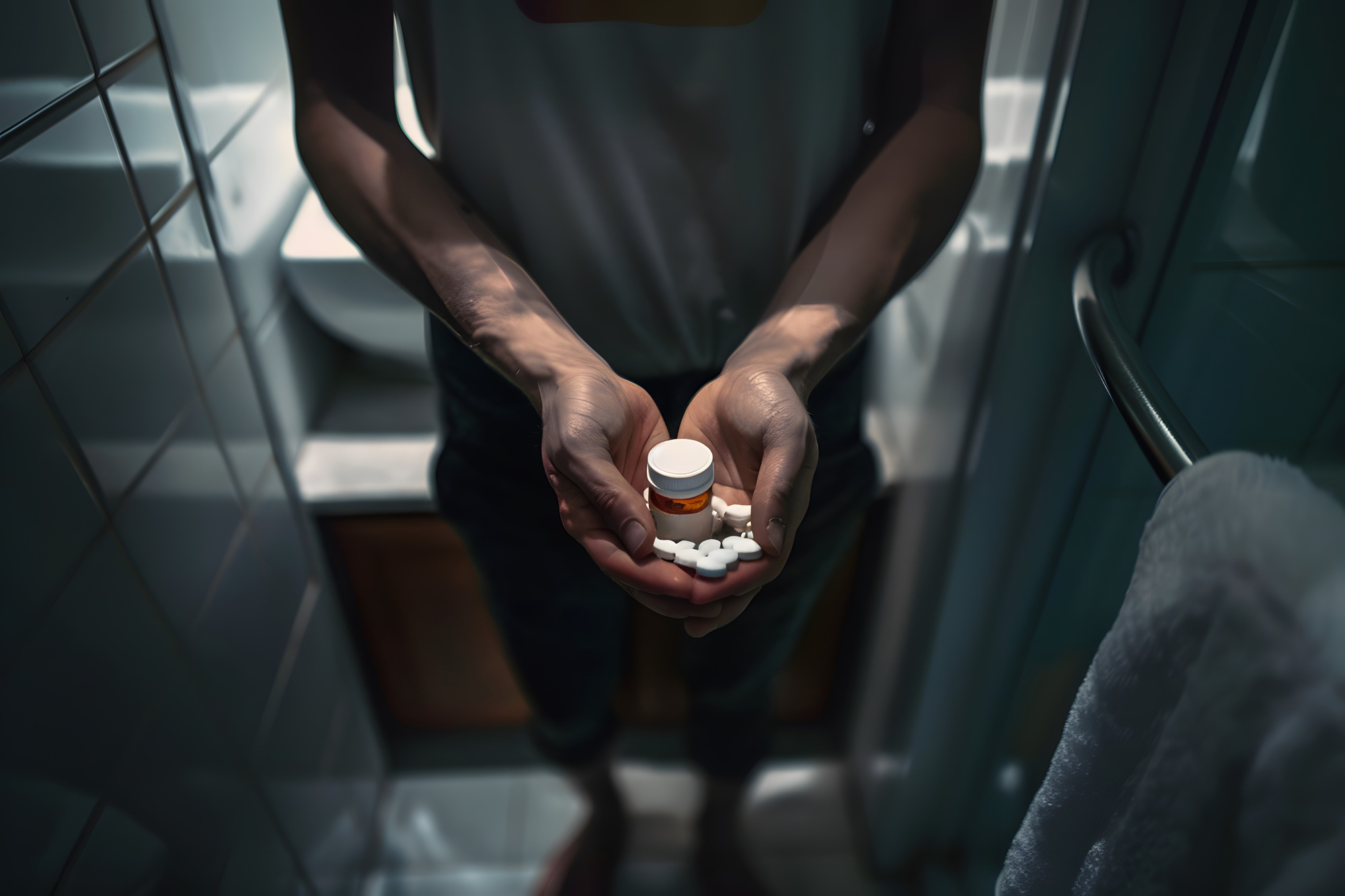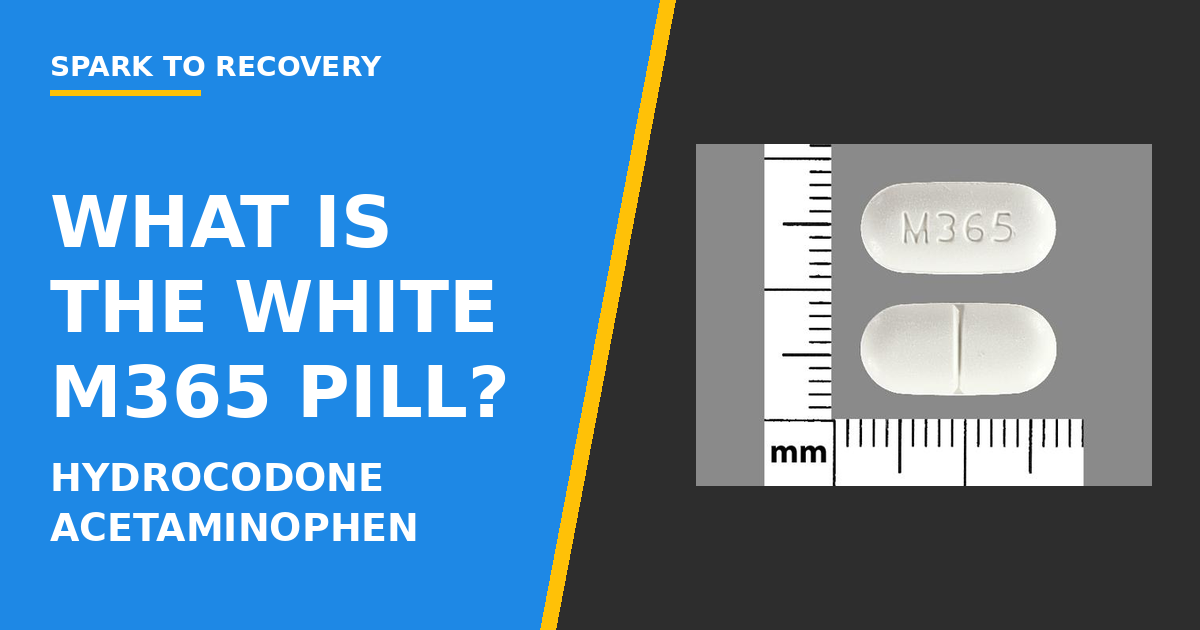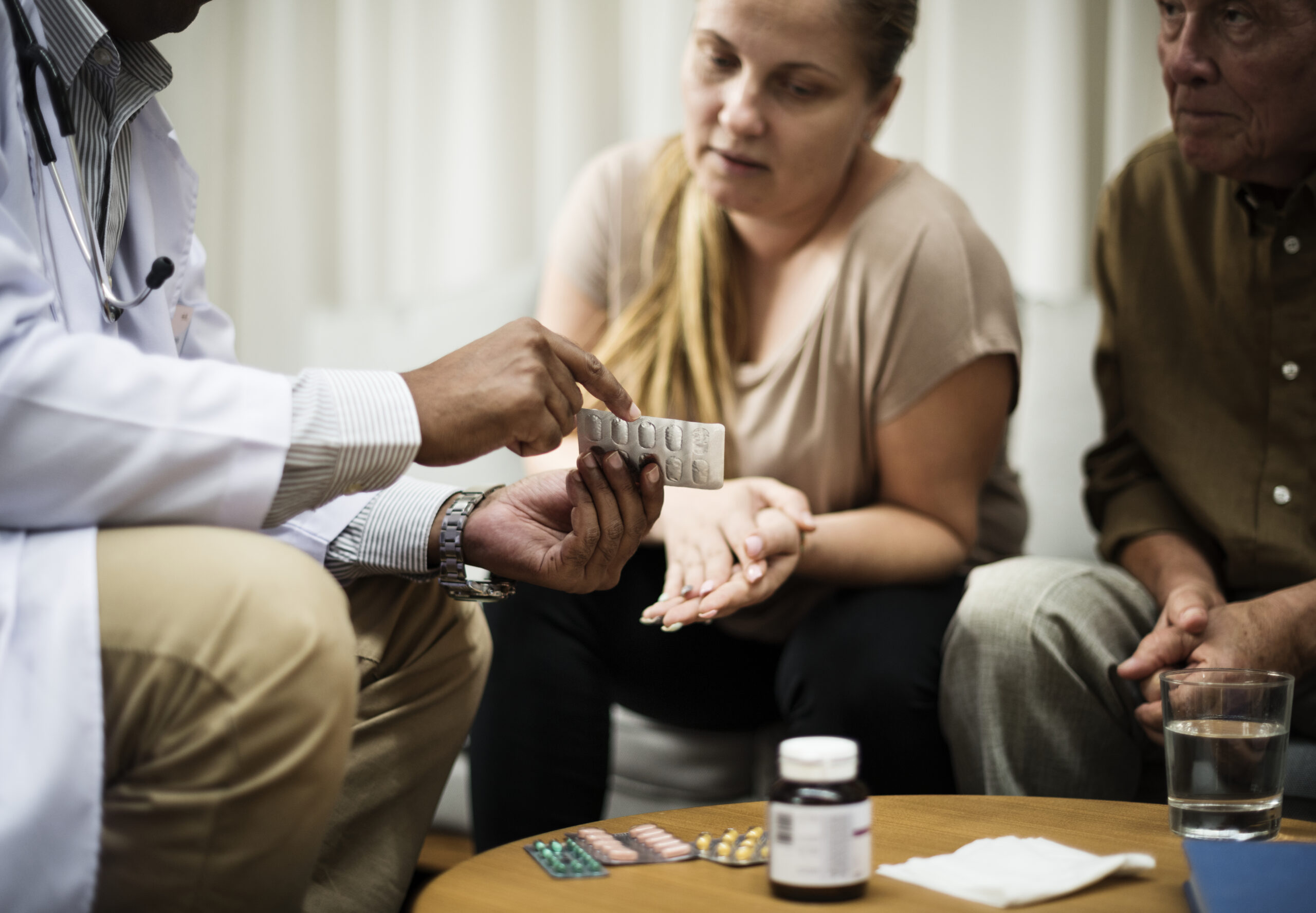Key Points
- What Is Gel Tab LSD?
Gel tab LSD refers to a form of LSD (lysergic acid diethylamide) dissolved in gelatin, making it easy to transport and consume. - The High and Its Dangers
LSD is a powerful hallucinogen that alters perception and can lead to unpredictable psychological effects [1]. Gel tab LSD may encourage heavier use due to its convenient format. - Inpatient Medically Assisted Rehab
Inpatient treatment provides 24/7 clinical supervision, medical support to manage withdrawal, and a structured environment for recovery success [2]. - Spark To Recovery
Spark To Recovery is dedicated to helping those struggling with LSD or any other substance. They offer guidance, resources, and comprehensive treatment plans to reclaim a healthy life. - FAQs and Popular Concerns
- How long does LSD stay in urine?
- Can you overdose on LSD?
- What do LSD withdrawal symptoms look like?
- Call to Action
Throughout this article, look for prompts to connect with an admissions team via a quick call or an online form.
Introduction
Gel tab LSD has emerged as a shocking and mysteriously appealing form of lysergic acid diethylamide—one of the most potent hallucinogenic substances known to science [1]. While the convenience and novelty of gelatin-embedded doses have made it easier than ever to experiment with LSD, the grim truth is that this innocent-seeming form of the drug can spark a cascade of dangerous psychological and physiological effects.
Despite its reputation for “mind expansion,” LSD can trigger severe experiences, including distorted perceptions, anxiety, panic, and even hallucinogenic persisting perception disorder (HPPD) [1]. For those struggling with repeated or long-term LSD use, addiction can form, creating an urgent need for professional intervention. This is where Spark To Recovery steps in, offering a powerful lifeline to regain control.
What Is Gel Tab LSD?
LSD—lysergic acid diethylamide—is classified as a Schedule I drug by the Drug Enforcement Administration (DEA), which means it has a high potential for misuse and no currently accepted medical use in the United States [3]. Traditionally found in blotter paper, LSD can also be distributed as microdots or dissolved in liquid. Gel tab LSD is simply LSD combined with a gelatin mixture, molded into small squares or shapes.
- Consistency and Appearance
- Gel tabs can resemble small candies or gummies, sometimes leading to accidental or unintentional ingestion.
- They often come in bright colors, adding to the deceptive sense of fun or novelty.
- Potency
- Just as with blotter LSD, the potency of gel tab LSD can vary greatly.
- Small variations in manufacturing may lead to unpredictable dose strengths, increasing the danger of accidental overdose.
- Legality
- LSD is illegal in the United States [3].
- Possession or distribution can lead to significant legal consequences.
Although LSD does not typically create the same “physical dependence” as opioids or alcohol, psychological dependence can still develop. Chronic users may find themselves using LSD repeatedly to chase vivid hallucinations or perceived insights. If you or a loved one is trapped in this cycle, professional help is essential.
If you suspect LSD misuse, connect with our admissions team by phone or a quick form to explore lifesaving treatment options.
Break Free from Drug Abuse Today
Spark To Recovery Can Help You Overcome Your Addiction
Effects and Risks of Gel Tab LSD
LSD primarily affects the body’s serotonin receptors, causing profound changes in mood, perception, and cognition [4]. Below are some major short-term and long-term effects.
Short-Term Effects
- Sensory Distortions
- Colors may seem brighter, shapes may shift and move, and a feeling of altered time is common.
- These distortions can lead to impaired judgment, resulting in risky behavior such as driving while hallucinating.
- Emotional Swings
- Users often experience mood swings ranging from euphoria to terrifying paranoia.
- Heightened emotions can exacerbate underlying mental health issues.
- Increased Heart Rate and Blood Pressure
- Physical symptoms include elevated heart rate, increased blood pressure, and dilated pupils [1].
- Panic and anxiety can worsen these physical symptoms, creating a potentially vicious cycle.
Long-Term Risks
- Psychological Trauma
- “Bad trips” can induce panic and paranoia, sometimes leaving lingering emotional scars.
- Some users experience flashbacks or ongoing perceptual disturbances, a condition known as HPPD [1].
- Development of Substance Use Disorders
- While LSD isn’t always considered as “addictive” in the classical sense (like opioids), repeated use can lead to compulsive behavior and difficulty stopping.
- Impact on Daily Life
- Chronic LSD use disrupts relationships, finances, and mental well-being.
- It can also contribute to the development or worsening of mental health conditions.
If you or a loved one notices these alarming signs, reach out to our admissions team to learn how professional intervention can change the course of your life.
Break Free from Drug Abuse Today
Spark To Recovery Can Help You Overcome Your Addiction
How Long Does LSD Stay in Urine?
The detection window for LSD depends on a variety of factors including metabolism, dosage, frequency of use, and hydration. Generally, LSD metabolites can be detected in urine for up to 24-72 hours after use [5]. However, advanced tests may detect trace amounts slightly longer, but LSD is not commonly included in standard drug screens.
- Factors Affecting Detection
- Metabolic rate, body mass, frequency of use, and hydration levels all influence how quickly LSD is eliminated.
- Because LSD is rapidly metabolized, specialized tests may be required to detect it [5].
- Implications for Treatment
- Early detection of LSD use can help clinicians gauge the scope of one’s substance use and design a tailored recovery plan.
Can You Overdose on LSD?
While LSD is not typically associated with the same overdose fatalities as opioids or alcohol, extremely high doses can produce severe psychiatric crises and dangerous physiological stress [6]. An LSD overdose might manifest as:
- Severe Hallucinations
- Extreme anxiety, paranoia, and delusions.
- Individuals may inadvertently harm themselves while under intense hallucinations.
- Psychotic Episodes
- Prolonged psychosis or schizophrenia-like symptoms can emerge in susceptible individuals [1].
- Physical Distress
- Significantly elevated blood pressure, body temperature fluctuations, and seizures in rare cases [6].
In many ways, an “LSD overdose” refers more to an overwhelming psychological experience rather than a fatal physical toxicity. However, the impact on the mind and body can be catastrophic and warrants urgent medical attention.
Don’t underestimate the potentially crippling effects of LSD misuse. Contact our admissions team now to discuss life-changing rehabilitation options.
Break Free from Drug Abuse Today
Spark To Recovery Can Help You Overcome Your Addiction
LSD Withdrawal and LSD Withdrawal Symptoms
LSD withdrawal can differ markedly from that of other substances like opioids or alcohol, as LSD does not produce classical physical dependence [1]. Yet for habitual users, stopping LSD can still trigger distressing psychological and emotional disturbances commonly referred to as LSD withdrawal symptoms.
Common LSD Withdrawal Symptoms
- Mood Instability
- Irritability, depression, and anxiety may intensify.
- Users who relied on LSD to escape reality might struggle without its dissociative effects.
- Sleep Disturbances
- Insomnia, vivid dreams, or nightmares can emerge once the user stops taking LSD.
- Cravings and Obsessive Thoughts
- Although cravings may not be as intense as with substances causing physical dependence, psychological cravings can still be powerful.
- Heightened Sensitivity
- Some individuals report feeling extra sensitive to stress and environmental stimuli post-LSD.
Concerned about withdrawal challenges? Our admissions team is here to guide you through an effective and supportive approach to ending LSD misuse.
Break Free from Drug Abuse Today
Spark To Recovery Can Help You Overcome Your Addiction
Why Inpatient Medically Assisted Rehab Is the Best Solution
When dealing with LSD addiction and possible co-occurring mental health disorders, there is no stronger solution than inpatient medically assisted rehab. Many people mistakenly believe they can manage LSD withdrawal and the psychological aftermath alone. However, LSD’s unpredictable effects on the mind can necessitate structured and continuous professional care [2].
Key Benefits
- 24/7 Clinical Supervision
- Medical staff are on-site at all times, ensuring immediate care in case of severe withdrawal symptoms or psychiatric emergencies.
- Structured Environment
- Daily schedules, group therapies, and counseling reduce the opportunities for relapse.
- Patients can focus exclusively on healing in a controlled setting without the triggers of their usual environment.
- Medication and Therapy Options
- Although there are no specific “LSD detox” medications, many people benefit from anti-anxiety meds or antidepressants under clinical supervision [2].
- Evidence-based therapies (e.g., Cognitive Behavioral Therapy, Dialectical Behavior Therapy) help individuals build resilience and coping skills.
- Holistic Support
- Nutritional counseling, wellness activities, and peer support groups help address the full spectrum of recovery needs.
Inpatient rehab stands out as the ultimate choice because LSD’s psychological grip can linger, making medical oversight and professional counseling critical. This high level of care often spells the difference between relapse and a successful, transformative recovery journey.
Spark To Recovery: Your Lifeline for Hope
When confronting LSD addiction or habitual misuse, Spark To Recovery serves as a relentless ally committed to saving lives. We take a compassionate yet comprehensive approach, ensuring each individual receives targeted, personalized care.
- Customized Treatment Plans
- Our team evaluates physical health, mental well-being, and personal goals to design a program that paves the way for sustained recovery.
- Expert Medical Professionals
- Spark To Recovery boasts an experienced team of doctors, therapists, and support staff, equipped to handle complex cases of polysubstance abuse and co-occurring disorders.
- Therapeutic Interventions
- From group counseling to one-on-one therapy, clients receive powerful support for emotional health and relapse prevention.
- Aftercare Planning
- Recovery doesn’t end when rehab does. Our robust aftercare services help maintain stability and focus in everyday life.
Ready to turn your life around? Get in touch with our admissions team now for an unwavering commitment to your healing journey.
Break Free from Drug Abuse Today
Spark To Recovery Can Help You Overcome Your Addiction
Frequently Asked Questions (FAQs)
- Q: What exactly is gel tab LSD?
A: Gel tab LSD is LSD infused into a small gelatin square or shape. It offers a convenient format for users but carries the same potent risks associated with LSD in blotter or liquid forms. - Q: How long does LSD stay in urine?
A: LSD metabolites can generally be detected for about 24-72 hours in urine, though this varies based on factors such as dosage, metabolism, and hydration [5]. - Q: Can you overdose on LSD?
A: While LSD overdose typically isn’t fatal in the same sense as opioid overdose, extremely high doses can lead to severe psychiatric crises, panic, and potential harm due to hallucinations [6]. Immediate medical attention is crucial in these scenarios. - Q: What are LSD withdrawal symptoms?
A: Symptoms can include depression, anxiety, insomnia, and psychological cravings. These issues can be challenging to manage alone, emphasizing the need for professional help. - Q: Why is inpatient medically assisted rehab preferred for LSD addiction?
A: Inpatient rehab ensures 24/7 clinical care, a structured environment, and immediate intervention in case of severe withdrawal or psychiatric episodes. This approach offers a powerful and effective path to lasting recovery [2].
Conclusion
Gel tab LSD may appear to be a mysterious and enticing alternative to traditional blotter LSD, but it remains a potent hallucinogen that can wreak havoc on mental and physical well-being. Whether it’s the shock of an intense “bad trip,” the psychological grip of repeated use, or the torment of lingering withdrawal symptoms, LSD can profoundly upend a person’s life.
Inpatient medically assisted rehab stands as the ultimate lifeline, offering around-the-clock support and specialized treatment to navigate not just LSD withdrawal, but also its long-lasting psychological effects. With Spark To Recovery, individuals receive a comprehensive treatment plan tailored to their unique needs, backed by clinical expertise and unwavering compassion.
Don’t let LSD continue to dominate your life. Reach out to our admissions team today—by phone or form—and take the first bold step toward victorious freedom from addiction.
Break Free from Drug Abuse Today
Spark To Recovery Can Help You Overcome Your Addiction
Citations
[1] World Health Organization: https://www.who.int
[2] National Institute on Drug Abuse: https://nida.nih.gov
[3] Substance Abuse and Mental Health Services Administration: https://www.samhsa.gov
[4] Drug Enforcement Administration: https://www.dea.gov
[5] National Institutes of Health: https://www.nih.gov
[6] Centers for Disease Control and Prevention: https://www.cdc.gov

Laura A. Fierro, Ph.D., LMFT
Board-Certified Physician in Internal Medicine



